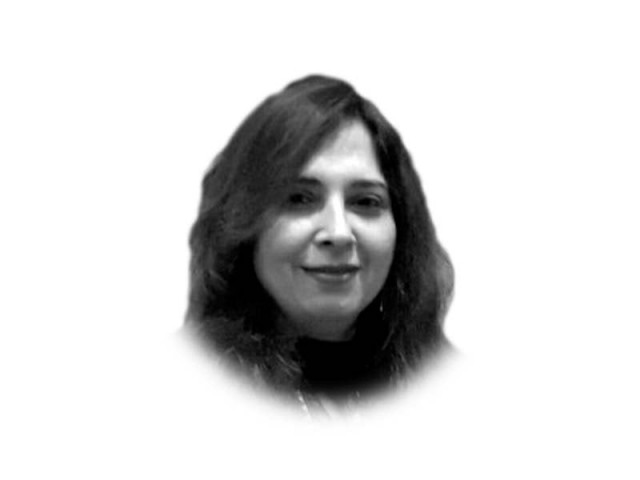In search of a survival plan
Constitution of any country is the paramount article of faith from which flows the legal spectrum of the rule of law

One question exceedingly asked is: Will Pakistan emerge from the economic slump that has pulled it almost to the abyss? Pakistan’s economy has been on a roller coaster on many occasions. However, the despondency felt today has never been that poignant. That does not mean we lose hope. Instead, it is time to ask: what will Pakistan have to do to climb out of this abyss? A tricky question, not unachievable, however. Many countries have been in worse situations than Pakistan, but they regained the balance with the combination of political and institutional will.
Growth in terms of rise in income, expanded market size and high economic and societal stakes of the ordinary people determine whether a country is in the direction of development or not. To achieve these milestones, economic institutions encourage investment and protect a broad section of society's property rights while constraining the power of wealthy elites. However, before these guiding principles are implemented, a few parameters are established and followed through.
The constitution of any country is the paramount article of faith from which flows the legal spectrum of the rule of law, preservation of fundamental human rights and the country's defence on an ideological basis. In an inclusive democracy, institutions draw strength from constitutional constraints that permit them to work within their boundaries while making them accountable to the people whose resources are allocated for the country's benefit. People send representatives to parliament to make laws on their behalf. In return, they share with the government part of their income through taxation to run the country. This handholding is extremely important for a country to sustain.
A cursory look at Pakistan’s present political affairs tells us that we are sinners of putting the country's constitution into disuse. Though we quickly put the blame on one another for bringing the wheel of justice to a halt, the spirit to work collectively is absent. It is here that Pakistan would have to invest most of its human capital.
To begin with, Pakistanis need to establish trust in one another. In this respect, three components need to be worked on to build a trustworthy political environment that would strengthen the social contract between the citizens and the state.
Unfortunately, the political leadership of Pakistan has been involved in elite capture rather than working for the betterment of the country. If the politicians adhere to their constitutional role, keep the interest of the people ahead, refuse to compromise on national interests and give respect to the parliamentary norms, the country can move to another stage of establishing sustained economic policies.
One of the binding factors in this relationship of trust could be the judiciary and the independent media of Pakistan. Over the last many decades, especially in recent years, a sense of lawlessness has emerged because of the partisan role the judiciary has played in the resolution of political cases. When a society lacks justice, especially at the highest echelon of power, it becomes exceedingly challenging to normalise things at the bottom. As an independent institution, the judiciary will have to put its house in order by respecting their profession and those who depend on them to resolve legal cases.
The media’s role in fostering trust among the people by disseminating accurate and correct information is equally important to allow them to make informed decisions. The time has arrived that we dedicate more time to issues of national interest rather than contesting political battles on national television for the sake of rating. Agenda setting is a private affair of any media organisation, and national policies do interfere in tweeting the agenda to the country’s favour, but that does not take away the power from the media house to disseminate news ethically and professionally.
Last but not least, the education sector will have to be vibrant to create a skilled, knowledgeable and informed workforce. Unfortunately, Pakistan is ranked among the countries with the highest number of unskilled workers. This can change if academia and industries lock steps to train human resources in fields more relevant to the contemporary world. Pakistan has one of the largest youth populations, which can be an asset if we allow them to educate themselves and invest their energies in areas that interest them.
Pakistan is full of possibilities, talents and resources; however, because of internal bickering and rivalries among institutions, we could not transition into the ideal concept of one nation, one destiny. It is time to discard the useless debate surrounding old and new Pakistan. Such discourse takes attention away from important issues and generates a "she did, he did" blame game. To redefine Pakistan, we must return to our founding fathers' ideals and adjust our national interests accordingly.
The recent steps the establishment and the caretaker government have taken to rehabilitate the economy should become a shared strategy for every Pakistani.
Published in The Express Tribune, October 5th, 2023.
Like Opinion & Editorial on Facebook, follow @ETOpEd on Twitter to receive all updates on all our daily pieces.














COMMENTS
Comments are moderated and generally will be posted if they are on-topic and not abusive.
For more information, please see our Comments FAQ